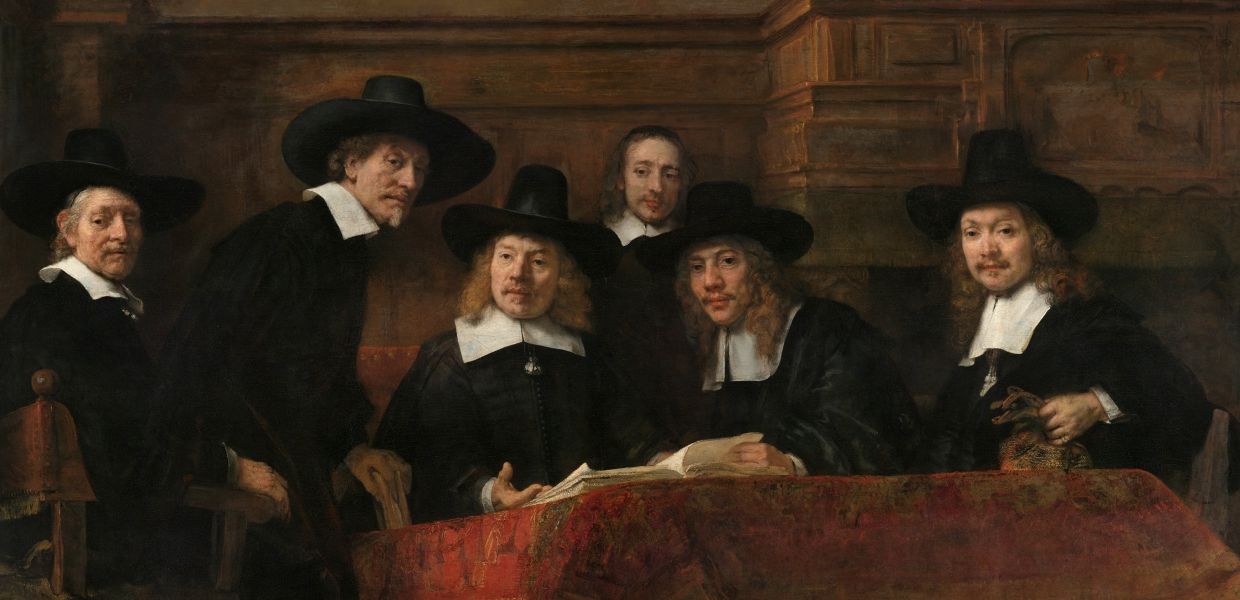Breathing new life into the Europeana Aggregators' Forum
A Steering Group has been formed to lead the Europeana Aggregators' Forum and develop an accreditation scheme for aggregators.

- Title:
- The Sampling Officials of the Amsterdam Drapers’ Guild, known as ‘The Syndics’
- Creator:
- Rembrandt van Rijn
- Date:
- 1662
- Institution:
- Rijksmuseum
- Country:
- The Netherlands
- Copyright:
- Public Domain
Europeana and its aggregators
The Europeana ecosystem builds on a network of national, thematic and domain aggregators enabling cultural heritage institutions to share their content on Europeana Collections and open it up to new audiences. Aggregators work with thousands of cultural institutions and collectors to gather authentic, trustworthy and robust data and make it accessible to Europeana Collections, education and research infrastructures, creatives, developers and the general public. An important source of expertise, aggregators offer their partner institutions advice and support in digitisation, content description, licensing, media formats accessibility, multilingualism and domain and subject vocabularies.
The Europeana Aggregator Forum - a potted history
The Europeana Aggregators' Forum (EAF) was established in 2012 to enable aggregators to generate and exchange ideas, knowledge, experiences and best practices. Its purpose was to foster closer working relationships and two-way communication between all its members. Twice a year the members of the forum met face-to-face and these meetings were organised and hosted by the Europeana Foundation or one of the aggregators in the network.
In line with the Europeana Strategy 2015-2020, to make it easier and more rewarding for cultural heritage institutions across Europe to work with Europeana, it is essential for the Europeana Aggregator Forum to function more effectively as a community and ensure its members feel united by the common principles.
A democratic new structure
As a first step to revitalise the Europeana Aggregators' Forum, the aggregators agreed during their last meeting in Berlin on 22 and 23 March 2018 to establish a light organisation structure.
On 26 April, the election of the first Europeana Aggregators' Forum Steering Group concluded. Marco Rendina from the Europeana Fashion International Association was elected as the chair of the Steering Group. Sara Di Giorgio from ICCU representing CulturaItalia was elected as the vice chair of the Steering Group. The Steering Group will be completed by Henning Scholz, representing the Europeana Foundation. The elected candidates will serve a two-year term after which elections will be held again.
An accreditation scheme for aggregators
The Steering Group will play an important role in shaping an accreditation scheme for aggregators.
The scheme will help to identify active aggregators and acknowledge their role as active and trusted partners for cultural heritage institutions to work with, but also for other aggregators to share knowledge and best practices with. Accredited aggregators will be featured on a dedicated page on Europeana Pro.
A forum for the future
Revitalising the Europeana Aggregators' Forum will help to explore opportunities to increase the synergies between aggregators. It will also help to give increased recognition for organisations aggregating Europe’s cultural heritage. A revitalised forum should also be better placed to function as an instrument to influence political action on cultural heritage.
Marco Rendina, new chair of the EAF Steering Group, says: ‘Aggregators have been the lifeblood of the Europeana initiative since its very beginning, and the Europeana Aggregator Forum, which represents all of them, should make its voice heard alongside the Europeana Foundation to advocate for the fundamental role of Europeana in our shared cultural heritage landscape, now and in the years to come.’



